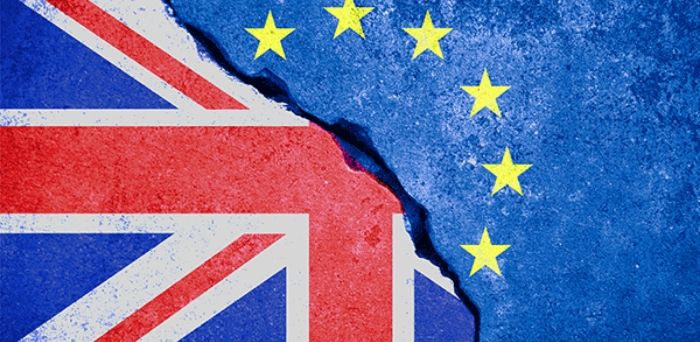
With Covid-19 the dominant issue for the past several months, Brexit temporarily receded into the background. However, in the meanwhile, the 11 month transition period has been passing by. Less than six months before the status deadline, both sides have expressed concern about the lack of progress with negotiations.
Last week saw a first round of “accelerated” face-to-face talks. The Prime Minister has argued that as the UK is aligned to EU rules, the negotiation should be straightforward. Critics, however, have pointed out that the UK wishes to have the freedom to diverge from EU rules so it can do deals with other countries.
Both sides say there are still significant areas of disagreement, yet the deadline for the two sides to agree an extension to the transition period has now passed. This week, Whitehall sources estimated that an additional 400million import and export customs declarations will have to be made annually as a result of the UK leaving the single market. The administrative burden for businesses will cost at least £6bn. Companies are also being told to prepare to pay for VAT on imported goods and ensure drivers have international driving permits.
Free movement of people will end and it’s not known if UK residents will be able to work in the EU without restriction. Contractors and consultants who were previously able to work freely across Europe may find more difficulty and complication with working, living and receiving payments abroad. Industries with an international focus, such as Oil and Gas, are most likely to be affected. This will come as an additional blow after Covid has seen the third price collapse in this industry in 12 years. The industry continues to face various challenges, from environmental issues to competitors in the form of green energy.
Due to the international nature of technology, it’s also likely that IT contractors will be affected. For contractors with clients in the EU, many will need to travel to meet their clients after Brexit is finalised. There are also complex rules relating to how services are taxed. If you supply services from the UK, you may be liable for VAT. If you travel to the EU, your customer has to account for any VAT-equivalent. Unfortunately, Brexit is unlikely to make these issues any simpler.
EU citizens settled in the UK will also face significant problems after Brexit unless the government provides them with a physical card to prove their right to remain in the UK legally. This may cause a skills deficit if EU contractors are forced to leave the UK. There’s a risk that businesses who need access to contingent workers and outside expertise during post-Covid restructuring will have trouble sourcing this talent. Recent IR35 developments may also exacerbate this issue, driving up rates, if contractors switch to permanent work or overseas contracts.
This week also saw the government release more details of its new points-based immigration system. Championed by those in favour of Brexit, the idea is to replace the automatic right of EU citizens to live and work here with equal access to people of any nationality if they meet the criteria. The Home Office says it particularly wants to attract health and care workers, graduates and highly-skilled scientists or researchers. But Labour is warning that the legislation is rushed and could cause major staffing difficulties for the NHS and care sector.
An additional complication to watch on the international stage is the UK government’s decision to allow British Overseas Nationals to come to the UK from Hong Kong. Currently there are 350,000 BNO passport holders, but about three million Hong Kong residents are eligible for BNO passports. In the meantime, British National Overseas Passport holders in Hong Kong will be able to travel to the UK immediately, subject to standard immigration checks, and will not face salary thresholds to gain their visas.
The decision comes after Beijing disregarded concerns expressed by the UK over national security law, which may contravene the terms of handing Hong Kong back to China in 1997. This raises various questions regarding the impact of a sudden influx of BNOs, particularly in this difficult post-Covid climate. Dominic Raab said that BNO passport holders would be allowed to “apply to work and study for extendable periods of 12 months and that will itself provide a pathway to future citizenship”.
There will also be more pressure to rethink other elements of our relationship with China. Some MPs believe the UK will not be able to afford a political battle with Beijing just when it will need Chinese investment to kick-start the economy. For many Brexit supporters, part of the post-EU “global Britain” vision involved much greater trade with China. However, these recent developments have highlighted possible security issues dealing with Chinese conglomerates, leading to the recent decision to ban Huawei 5G equipment in the UK after 31 December.
Covid-19 has also changed the focus of international trade, with supply chains severely impacted when China went into lockdown. Ministers will now act to make Britain less strategically dependent on China. The government will try to reduce the length of supply chains and diversify its sources and markets, not just for medical equipment and pharmaceuticals, but also technology and other strategic sectors. This could lead to a greater focus on domestic production and the creation of more permanent and contingent work.
If you’re looking for a new contracting role, make sure you read our article on the latest hiring news for the UK, including how to recycle your skills in a different industry. ContractingWISE have access to a wide range of hassle-free services that can help you with setting up a limited company or finding the right umbrella company for you. To talk to a member of our team, call: 0203 642 8679.



